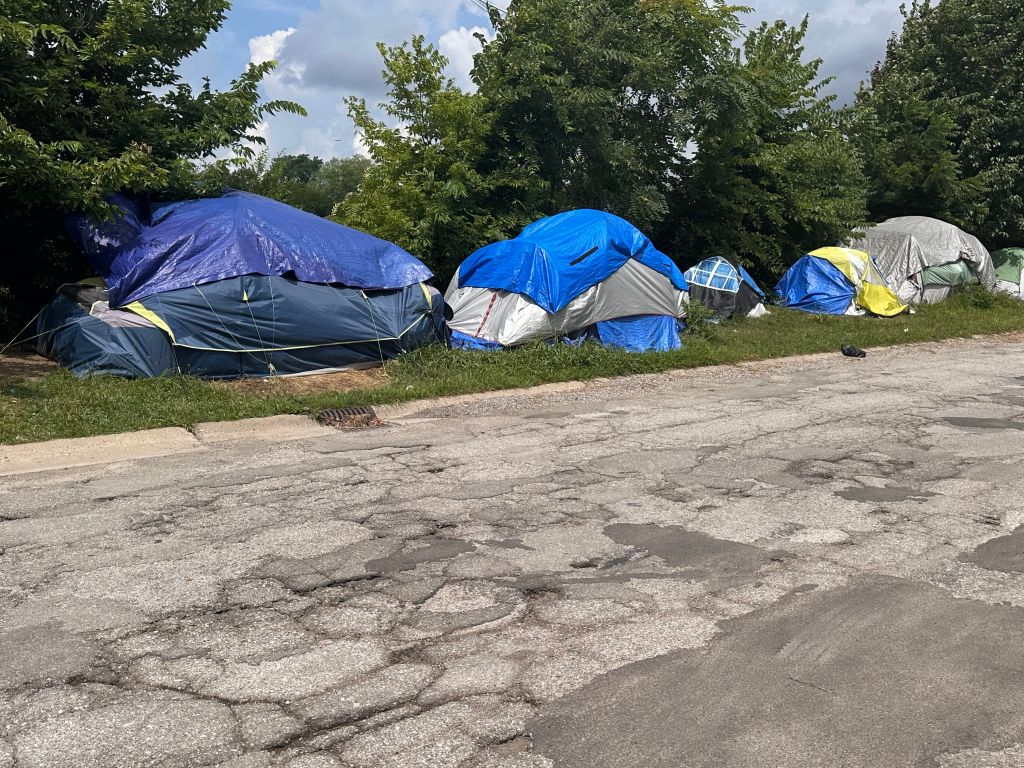Indianapolis Homeless People Respond to Stereotypes

INDIANAPOLIS — A homeless encampment on the south side of the city, hidden behind industrial buildings and railroad tracks, faces a city order to clear the site by August 11. The directive has brought uncertainty and fear to the close-knit community of tents and tarps.
But for many residents, it’s about more than losing a place to sleep. They want to challenge the stereotypes attached to them.
“We’re not just addicts or criminals,” said Tonya, who lives in the camp and says she plans to run for mayor of Indianapolis in 2028. “I know it sounds crazy to some people, but I’ve got a calling. I’m working on a degree to be a pastor, I’m raising my kids the best I can — even here, on the streets.”
The number of people experiencing homelessness in Marion County has increased over the past year, reflecting a nationwide trend. While officials and property owners raise concerns about crime, drug use, and safety, residents say their reality is more complicated.
Ashley, another resident, spoke about a cycle of abuse and hardship. “I’ve been in and out of violent relationships, and I’ve got three kids I haven’t seen in a long time. There’s a DCS [Department of Child Services] case still open, and until that’s settled, I can’t be with them,” she said, her voice catching. “It’s not that I don’t care — it’s that I’m stuck.”
Concerns around the encampment are serious. Police are investigating a homicide after a man was found dead near the railroad tracks by the camp. The Indianapolis Metropolitan Police Department has released few details, but the incident has increased public attention. Residents say they know about the violence but say not everyone there is involved.
“You have people here trying their hardest to get out,” Tonya said. “We apply for jobs, but once they see our address or know we don’t have one, we’re done. It’s a no.”
Nearby property owners say the visible encampment makes selling or developing land difficult. City officials are caught between public safety concerns, protecting property values, and respecting the rights of unhoused residents.
With the August 11 deadline approaching, many camp residents don’t know where they’ll go next. Some fear arrest; others fear losing the community they have built.
“There’s no easy answers here,” Ashley said. “But I know this — we’re human. And we deserve a chance.”

















